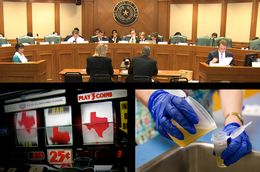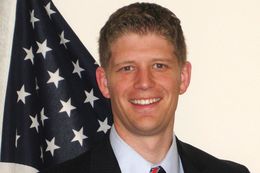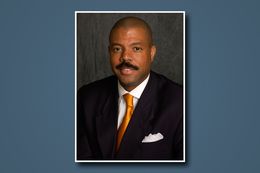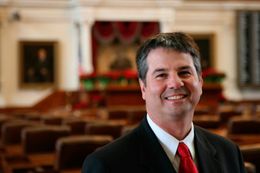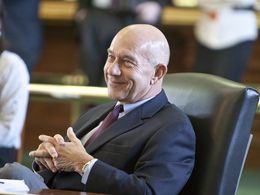
It’s a little funny to talk to people at the Capitol who have been steeled in a culture of political warfare — this is not just staff, but lobbyists and members and everybody else — about the outbreak of peace.
Many differences remain, but those blood veins that were sticking out on everyone’s foreheads and necks in 2009 and 2011 have smoothed out. For the moment, Texas civics is downright civil. Members disagree and then talk to each other. Senate Democrats were full of praise for the very conservative Sen. Dan Patrick, R-Houston, after the upper chamber voted 30-1 for his proposal to increase the number of charter schools in Texas.
The outbreak of warm feelings has a substantive side. Attorney General Greg Abbott is having a hard time selling redistricting. He wants lawmakers to enact the court-drawn maps in place of their own, the better to shorten and simplify ongoing court battles. Even if that is a good idea, it would take the Legislature into stormy waters. Senators looked at it in private meeting and demurred. The House’s response was to say they’ll be happy to look at anything that gets through the Senate.
The House has a new coalition in operation, with establishment Republicans and Democrats siding together against populist Republicans. That was the story on the budget, on key votes in education, and probably says something about why the speaker is reluctant to jump into a messy redistricting fight.
And the money woes that plagued lawmakers two years ago are mostly gone. They’ve been replaced by a set of expensive problems that have even some Republicans talking about higher spending. Tommy Williams, the Senate’s finance chairman, floated an idea for a constitutional amendment that would tap the Rainy Day Fund for billions for roads and water. That would solve two problems, pulling money into infrastructure and doing it in a way that keeps lawmakers from having to vote to spend more money than the state’s constitutional growth cap would allow. If the money gets spent, it would be voters doing the busting and not the people who represent them.
The session is not without its fault lines. One is Medicaid expansion. The governor is solidly against it and some lawmakers are with him in that. But a fair number are looking for ways to accept federal Medicaid expansion money in a way that’s acceptable to Rick Perry. They haven’t found it yet.
The Rainy Day Fund, and whether and how to use it, might be another. Many Democrats want the money cut from public education restored; they had a meeting somewhere and are starting to use the phrase “human infrastructure” a lot to talk about funding for schools and health and human services. That’s a response to the drumbeat of water and transportation infrastructure coming from management. Sure enough, some lawmakers want to use the savings account, or some of it, for infrastructure. Others don’t want to use it at all, and some want to use it, but not just yet. Check out the guest columns in this issue (here, here, here and here) for fuller versions of each viewpoint.



